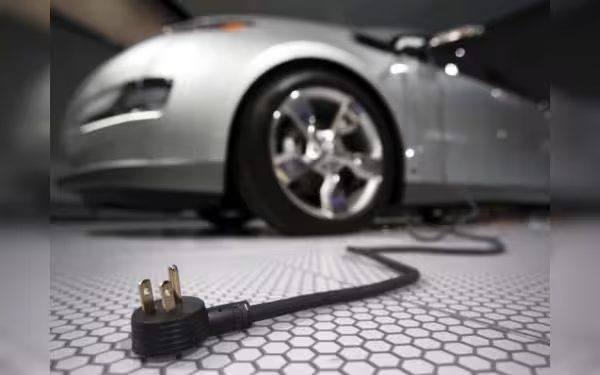Thursday, November 21, 2024 07:28 AM
Pakistan's Ambitious Plan for 30% Electric Vehicles by 2030
- Government aims for 30% electric vehicles by 2030.
- 31 investors show interest in local EV manufacturing.
- Infrastructure development is crucial for EV adoption.
 Image Credits: tribune.com.pk
Image Credits: tribune.com.pkPakistan plans to adopt 30% electric vehicles by 2030, aiming for reduced emissions and a sustainable future.
The world is witnessing a significant shift towards electric vehicles (EVs), and Pakistan is no exception. With the increasing awareness of environmental issues and the need for sustainable transportation, the government has unveiled a plan to adopt 30% electric vehicles by the year 2030. This ambitious initiative aims to reduce carbon emissions and promote cleaner air in urban areas, aligning with global trends in the automotive industry.
During a recent announcement, the minister highlighted that many countries are already reaping the benefits of EVs. The demand for electric vehicles is on the rise, driven by advancements in technology that offer numerous advantages. These benefits include lower operating costs, reduced maintenance, and a significant decrease in greenhouse gas emissions. As the world moves towards greener alternatives, Pakistan is taking steps to ensure it does not lag behind.
Currently, the government has issued two licenses for the manufacturing of electric vehicles, which marks a crucial step in establishing a local EV industry. Furthermore, around 31 investors have shown interest by applying for licenses, indicating a growing enthusiasm for electric mobility in the country. This influx of investment could lead to job creation and technological advancements, fostering a more robust economy.
As the plan unfolds, it is essential for the government to provide the necessary infrastructure to support the widespread adoption of EVs. This includes the establishment of charging stations and incentives for consumers to make the switch from traditional vehicles. Public awareness campaigns will also play a vital role in educating citizens about the benefits of electric vehicles and how they can contribute to a cleaner environment.
The initiative to adopt 30% electric vehicles by 2030 is a commendable step towards a sustainable future for Pakistan. As the country embraces this change, it is crucial for all stakeholders, including the government, investors, and the public, to work together. By doing so, Pakistan can not only improve its air quality but also position itself as a leader in the green transportation revolution. The road ahead may be challenging, but with collective effort and commitment, a cleaner, greener future is within reach.













